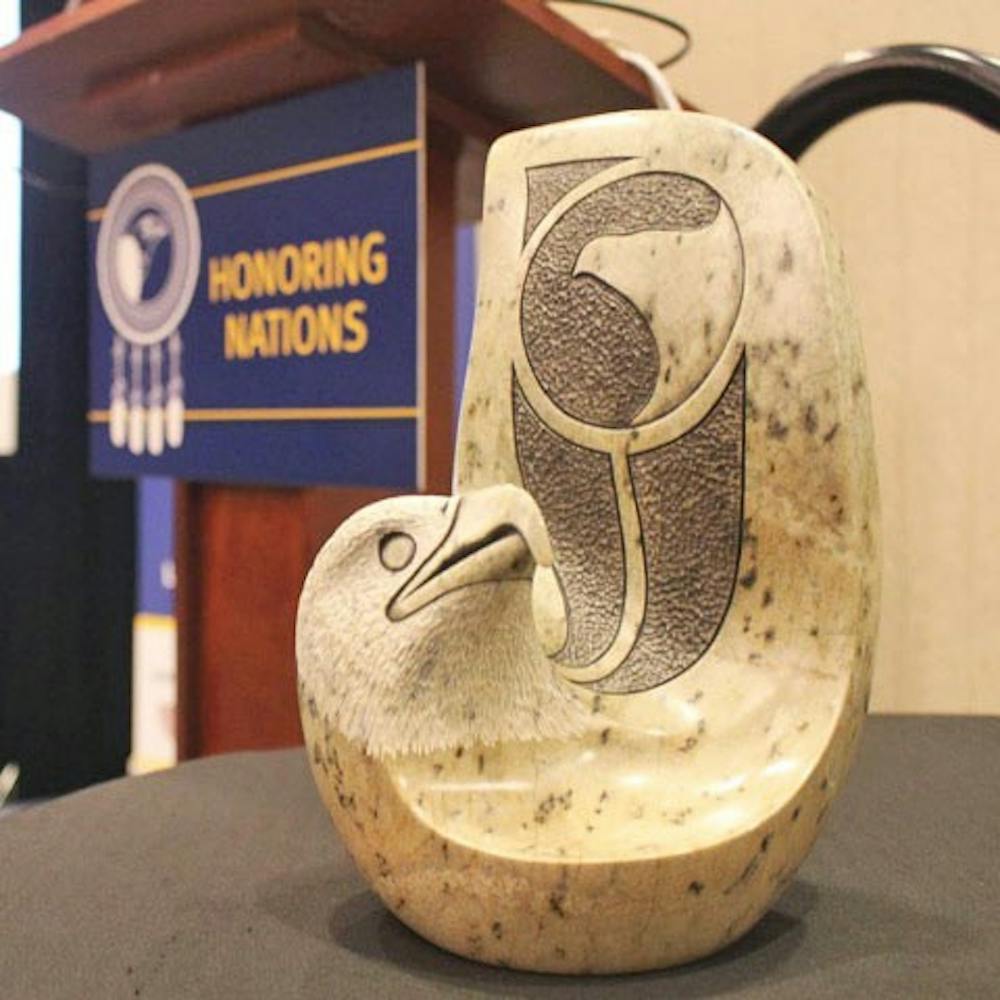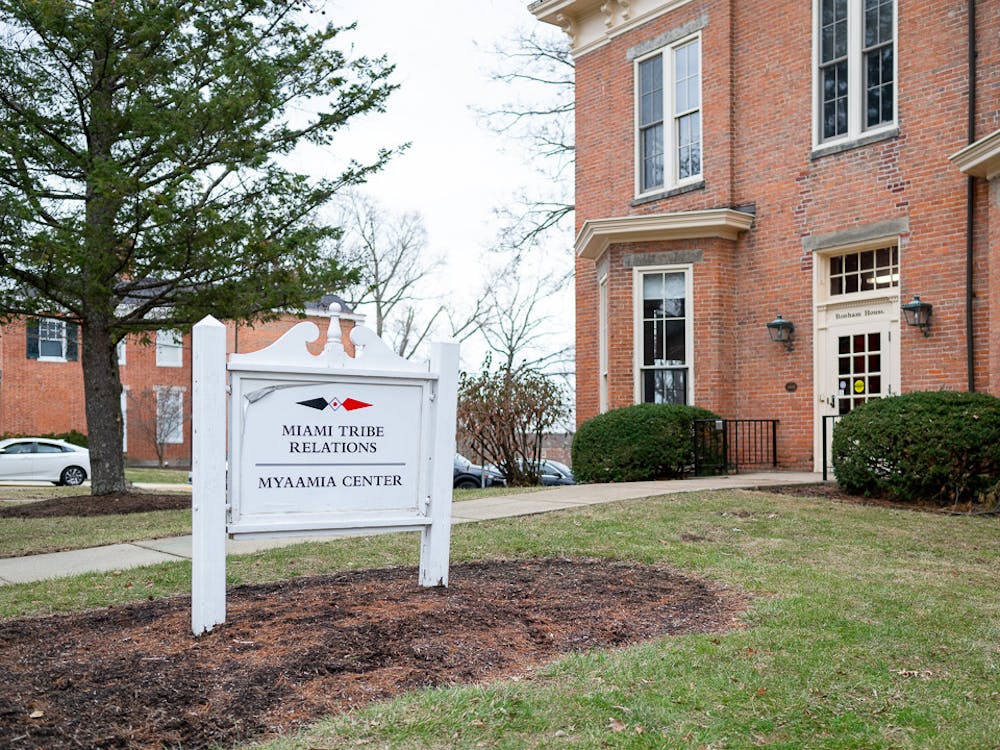The Miami Tribe of Oklahoma was honored by The Harvard Project on American Indian Economic Development at the 75th Annual National Congress for American Indians Convention on Thursday, Oct. 25 in Denver, Colorado.
The Harvard Project presented the Miami Tribe with an Honoring Nations Award with the distinction of honors for its Myaamiaki Eemamwiciki Program (the Miami Awakening).
After losing its last fluent speaker in the 1960s, tribal leadership in the '90s decided action had to be taken to revive the Myaamia culture and language. In 1997, the Myaamiaki Eemamwiciki Program officially began.
The program aims to incorporate Myaamia culture and language into the community through programs such as cultural gatherings, workshops and youth summer camps.
"I am so honored to serve the Miami Tribe of Oklahoma as chief at this time in our history and to witness and support the great awakening we are experiencing with the return of our language and culture," Chief Douglas Lankford said at the Honoring Nations Awards and Presentations. "Our relationship with Miami University, their commitment to our Myaamia Center and the incredible work accomplished there are key components to our success in community revitalization."
The Myaamia Center, located in the Bonham House on Miami's campus, has served as the tribe's research arm since 2001.
Bobbe Burke, coordinator of Miami Tribe Relations, has worked with the Miami Tribe since the early '90s.
"At that point, I was really the only person here who was focused on trying to do more coordination with the Miami Tribe," Burke said. "Over the years, as the number of students here have increased, we've spent a lot more time on providing resources, being a good guide to them and trying to help them solve whatever problems they're having at the time."
There are several different offices in the center that work on different research aspects for the tribe, from language to education.
"We have a very wide audience," Kara Strass, Miami Tribe Relations assistant and member of the tribe, said. "We have the students while they're here in college, but we also have summer camps for younger kids and community programing."
Additionally, the center has an IT office which works with Miami students, usually in the computer science department, to find new ways to incorporate technology into the center's research.
"Some of the work that's being done here is really right at the edge of technology," Burke said. "It's going to spread to other tribal communities who are going to use these technological things that's created here, so that's very exciting."
Enjoy what you're reading?
Signup for our newsletter
This year, the Miami Tribe was one of six finalists for the Honoring Nations award, selected from a pool of over 70 applicants from 50 tribal nations. It's a huge honor for the tribal nations who receive it, but it's also a way to share the work that's happening in Indian country to a larger population, Strass said.
"From the tribal perspective, it was kind of this recognition that we're at a place where we can really see the outcome of all of the labor that has gone in the past 25 years of this language and cultural revitalization," Strass added. "I think it's now at the point where you're able to look back and really see the fruits of your labor."
Strass is excited that people are acknowledging the revitalization efforts as important work.
"We work with our tribe students all the time to come to an understanding of who they are as Myaamia people, and language and culture play a big role in that," she said. "It's important to individuals because now we can say, 'This is what it means to me to be a Myaamia person and these are the parts of my culture or language that I'm deciding to practice as an individual.' It's had a huge impact on the community and how we relate to each other, how we come together as a group."
To learn more about the additional Honoring Nations award winners, head to the Harvard Project's website at https://hpaied.org.




